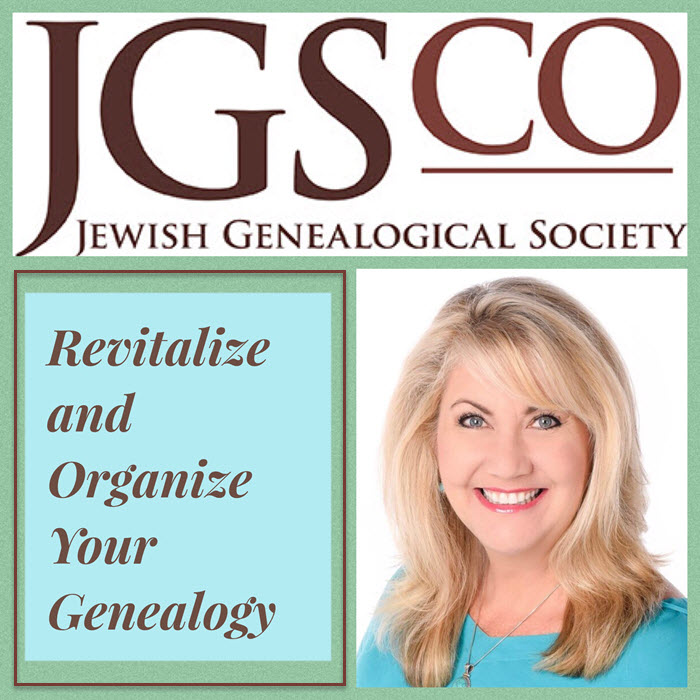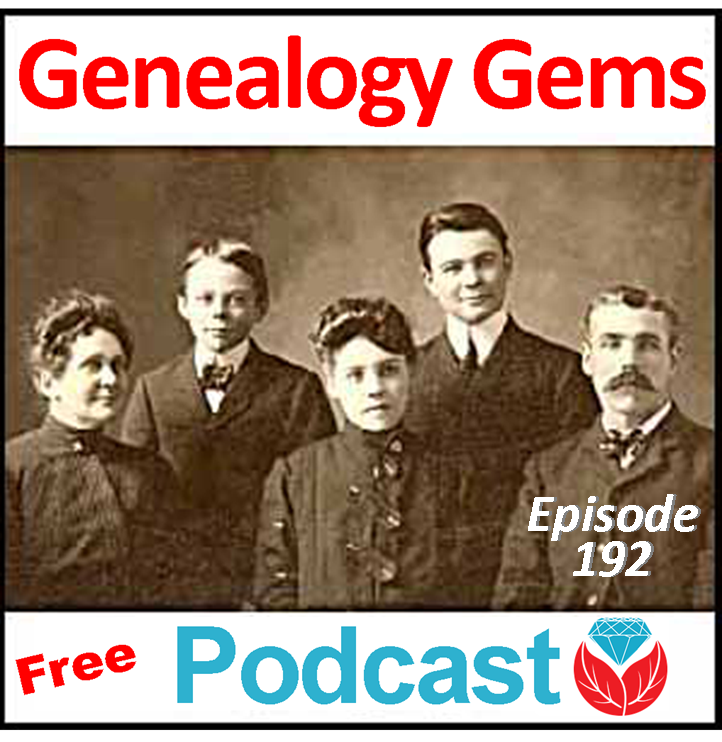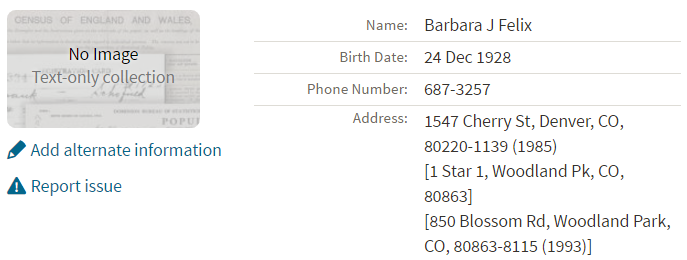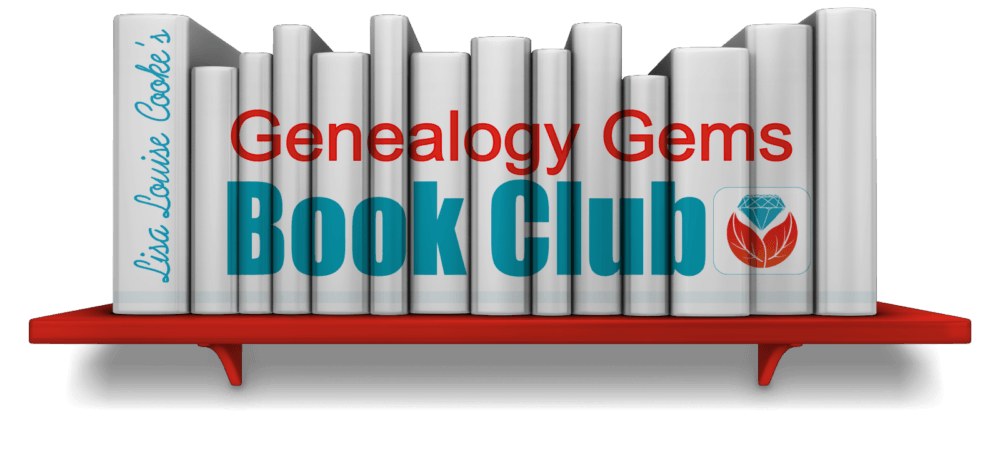by Lisa Cooke | Sep 18, 2017 | 01 What's New, Conferences
Do you want to revitalize your genealogy energy, boost your online research skills, and better organize your many family history discoveries? Join Lisa Louise Cooke at the “Reinvigorate Your Research” all-day seminar in Denver, Colorado, hosted by the Jewish Genealogical Society of Colorado.

Genealogists seem to face some universal challenges. Like, how to research online more effectively and efficiently. How to organize what you find (especially when discoveries are spread across various websites and in paper files). Knowing which technology tools to invest in, and how to master them. Genealogy and technology expert Lisa Louise Cooke can help you with all these challenges–in person, in fact, at this upcoming all-day event in Denver, Colorado.
Organize Your Genealogy, Revitalize Your Research
Here’s what you’ll want to know about this event:
What: “Reinvigorate Your Research with Lisa Louise Cooke:” Annual All-Day Seminar by JGSCO
Where: Jewish Community Center, Social Hall, 350 S. Dahlia St, Denver
When: Sunday, October 15, 9:00 am – 3:30 pm (doors open at 8:00 am for registration)
Hosted by: Jewish Genealogical Society of Colorado
Registration: Register online by October 9, 2017
BONUS: Cost of admission ($20 members/$35 nonmembers) includes continental-style breakfast, snacks, and a Kosher buffet-style lunch.
Lisa’s host, The Jewish Genealogical Society of Colorado, has chosen a fantastic lineup of Lisa’s lectures that really do hit on all those pain points we have. Here’s what classes you’ll get to enjoy all day on Sunday, October 15:

How to Organize All this Genealogy Stuff! Save yourself future frustration and disappointment by putting a solid genealogy organizational plan in place for all the types of items that will be coming your way.
- Organizing All This Paper! The Physical Items Organization System
- Organizing All That Genealogical Data! The Family Tree Data Organization System
- Organizing All These Digital Files! The Digital Organization System
- Organizing All that Web Information! The Online Notetaking System
Google Search and Google Books: Tools for Every Day. Discover Google search tools and new ways for using them to solve the genealogical challenges you face. Learn the secrets of getting more than you ever imagined from the largest online collection of digitized books–Google Books. With 25 million books, many of which are digitized and fully searchable, Google Books should be the first place to which you turn as you climb your family tree. Learn how to make the most of this goldmine chock full of historical data with little-known techniques.
Time Travel with Google Earth. Get ready to experience old historic maps, genealogical records, images, and videos coming together to create stunning time travel experiences in the free Google Earth program. We’ll incorporate automated changing boundaries, and uncover historic maps that are built right into Google Earth. Tell time travel stories that will truly excite your non-genealogist relatives! You’ve never seen anything like this class!
Future Technology and Genealogy: 5 Strategies You Need. Envision your genealogy as technology speeds ahead into the future. There are five key strategies that you can employ right now that will make the ride easier and the results more exciting than ever. Discover the paradigm shift that will make it easy to find the right technology for your needs and learn how to capitalize on how technology is changing the flow of information.
Bring Lisa Home with You
 I’m sorry if you’ll miss this event–Lisa’s seminar attendees always leave with a new list of strategies they can’t wait to try. (I’ve actually seen people sneak onto their devices during her presentations and start trying the apps, search strategies, and tools she’s talking about. It’s like they can’t wait after she shows them what’s possible.)
I’m sorry if you’ll miss this event–Lisa’s seminar attendees always leave with a new list of strategies they can’t wait to try. (I’ve actually seen people sneak onto their devices during her presentations and start trying the apps, search strategies, and tools she’s talking about. It’s like they can’t wait after she shows them what’s possible.)
You can bring Lisa home with an annual Genealogy Gems Premium membership. Premium members have exclusive access to a packed archive of video classes–including a new class on Google Books and an entire series to help you organize your genealogy “stuff.” You also get ongoing tips and inspiration in her monthly Premium Podcast (and access to all past episodes). It’s the most affordable and consistently high-quality, tech-forward genealogy education around. And you can start trying her tips any time you like.
by Lisa Cooke | Jun 8, 2016 | Genealogy Gems Podcast
Genealogy Gems Podcast
Episode #192
with Lisa Louise Cooke
 Highlights from this episode:
Highlights from this episode:
- How to use Animoto, my favorite new tech tool for creating professional-looking slide shows and videos
- New Genealogy Gems team member Amie Tennant shares insights as she prepares for professional certification
- A listener shares a favorite genealogy database for finding recent relatives
- A listener uses DNA to connect adoptive and biological relatives?who were closer than she thought
- A segment from the Genealogy Gems Book Club interview with author Helen Simonson on The Summer Before the War
- News from Dropbox and a new initiative to capture the family histories of remote, indigenous populations
NEWS: Dropbox Improvement
New on Dropbox: Now when you share Dropbox content with someone, shared links will stay active even if you move or rename the file or folder.
Dropbox file-sharing tip: “If you ever want to unshare something you’ve already sent out (like to remove access to a sensitive document), it’s easy to disable an active link.” Just sign in to dropbox.com. “Click the link icon next to the file or folder, and click ‘remove link’ in the top right corner of the box that appears. You can also remove the link by visiting dropbox.com/links and clicking ‘x’ next to the file or folder.”
How to share folders on Dropbox
NEWS: MyHeritage and Tribal Quest
NEWS: New Premium Video
 Getting Started in Genetic Genealogy: a new video available to Genealogy Gems Premium website members by Your DNA Guide Diahan Southard
Getting Started in Genetic Genealogy: a new video available to Genealogy Gems Premium website members by Your DNA Guide Diahan Southard
Genealogy Gems Premium website membership: Click here to learn more
Click here to watch a free video preview
MAILBOX: Russ Recommends the U.S. Public Records Index
 Russ blogs at https://worthy2be.wordpress.com/
Russ blogs at https://worthy2be.wordpress.com/
Genealogy Gems Podcast episode 181: What to use while waiting for the 1950 census
Russ recommends the “U.S., Public Record Index, 1950-1993, Volume 1 and 2.”
“Volume 1 is far more interesting with more data. A search will return a Name AND Birth date, along with more than one ADDRESS, Zip Code and sometimes phone numbers.”
Ancestry’s description of its online database for Volume 1 says original data comes from public records spanning all 50 states, such as voter registration lists, public record filings, historical residential records and other household database listings.

Thoughts about using the U.S. Public Records Index (some of these points come from the FamilySearch wiki):
Not everyone who lived in the U.S. appears in the index, and you’re more likely to find birth information for those born between 1900 and 1990. What you’ll find is primarily where someone lived, and often when they lived there.
It’s rarely possible to positively identify a relative in this index, since there’s limited information and it spans the entire country for up to a half century, and you can’t follow up on the record it comes from because the index doesn’t say where individual records come from. As Russ says, this is a great resource to use in combination with other records. It’s a similar concept to the way you might consult uncited family trees: great hints to go on and follow up with further research into verifiable sources.
When you find more recent listings, you can sometimes find telephone numbers for living distant relatives. The Family History Made Easy podcast has a 2-episode series (episodes 14 and 15) about cold-calling techniques for reaching out to distant relatives you don’t know.
MAILBOX: Katie on Cold-calling and Adoption and DNA
Katie blogs her family history adventures at McKinnon Ancestry.
Click here to read a blog post with her story and see more pictures that go with it.

INTERVIEW: Amie Tennant
 Amie Tennant is the newest member of the Genealogy Gems team. She contributes to the blog at www.genealogygems.com. She is also preparing to become a certified genealogist, which is a professional credential offered by the Board for Certification of Genealogists (BCG).
Amie Tennant is the newest member of the Genealogy Gems team. She contributes to the blog at www.genealogygems.com. She is also preparing to become a certified genealogist, which is a professional credential offered by the Board for Certification of Genealogists (BCG).
What have you learned in the process of preparing for certification?
“I think the biggest thing I have learned is the meaning of true exhaustive research. We talk a lot about that in our genealogy standards, but essentially, it is looking EVERYWHERE for EVERYTHING that might shed light on your research question.”
Why do you want to become certified?
I want a way to determine how well I am doing. A measuring stick of sorts.
What is the process like?
The process is the same for everyone. Once you have decided to become certified, you apply to the BCG. They send you a packet of information and you are “on the clock.” The clock is up in one year unless you ask for an extension. The portfolio you create consists of:
- Signing the Code of Ethics
- Listing your development activities (like formal coursework or enrichment activities);
- Transcribe, abstract, create a genealogy research question, analyze the data, and then write the research plan for a document that is supplied to you;
- Do those same 5 things for a document of your choosing;
- A research report prepared for another person.
- A case study with conflicting, indirect or negative evidence;
- A kinship determination project (a narrative genealogy that covers at least 3 generations)
- There is a lot of great free content on the BCG website: articles, examples, and skill-building activities.
GEM: How to Create Family History Videos Quickly and Easily
Visit our page on how to create family history videos which includes video tutorials and inspirational examples.
 BOOK CLUB: Interview excerpt with Helen Simonson,
BOOK CLUB: Interview excerpt with Helen Simonson,
author of
The Summer Before the War


Get the hardcover
Get the Kindle ebook
Beatrice Nash is a bright, cosmopolitan young lady who has grown up traveling the world with her father. Now he’s gone, and she’s landed in the small village of East Sussex, England, where the locals aren’t entirely thrilled about engaging her as a female Latin instructor for their schoolchildren. She spends a summer fighting for her job, meeting a local cast of engaging eccentric characters (both gentry and gypsy) and trying not to fall for handsome Hugh. Then the Great War breaks out.
This novel follows Helen’s popular debut novel, Major Pettigrew’s Last Stand, which became a New York Times bestseller and has been translated into 21 languages. Genealogy Gems Premium website members can join us in June to hear our exclusive and fun interview with Helen Simonson.
GENEALOGY GEMS PODCAST PRODUCTION CREDITS:
Lisa Louise Cooke, Host and Producer
Sunny Morton, Contributing Editor
Vienna Thomas, Audio Editor
Additional content by Lacey Cooke, Amie Tennant
Disclosure: This article contains affiliate links and Genealogy Gems will be compensated if you make a purchase after clicking on these links (at no additional cost to you). Thank you for supporting Genealogy Gems!


 I’m sorry if you’ll miss this event–Lisa’s seminar attendees always leave with a new list of strategies they can’t wait to try. (I’ve actually seen people sneak onto their devices during her presentations and start trying the apps, search strategies, and tools she’s talking about. It’s like they can’t wait after she shows them what’s possible.)
I’m sorry if you’ll miss this event–Lisa’s seminar attendees always leave with a new list of strategies they can’t wait to try. (I’ve actually seen people sneak onto their devices during her presentations and start trying the apps, search strategies, and tools she’s talking about. It’s like they can’t wait after she shows them what’s possible.)
 Highlights from this episode:
Highlights from this episode: Getting Started in Genetic Genealogy
Getting Started in Genetic Genealogy Russ blogs at
Russ blogs at 

 Amie Tennant is the newest member of the Genealogy Gems team. She contributes to the blog at
Amie Tennant is the newest member of the Genealogy Gems team. She contributes to the blog at  BOOK CLUB: Interview excerpt with Helen Simonson,
BOOK CLUB: Interview excerpt with Helen Simonson,
